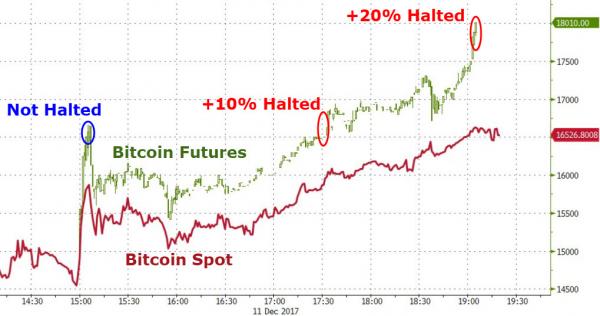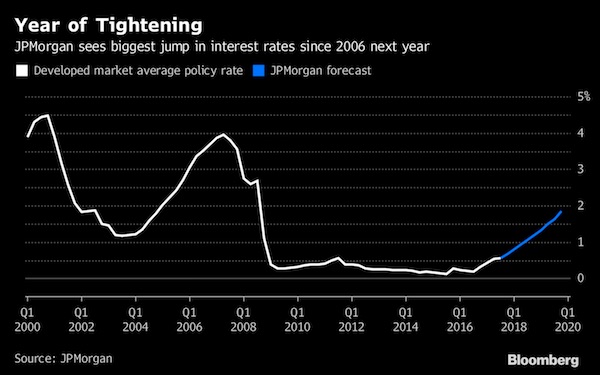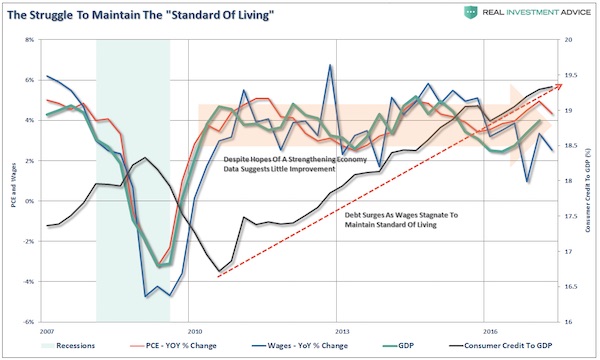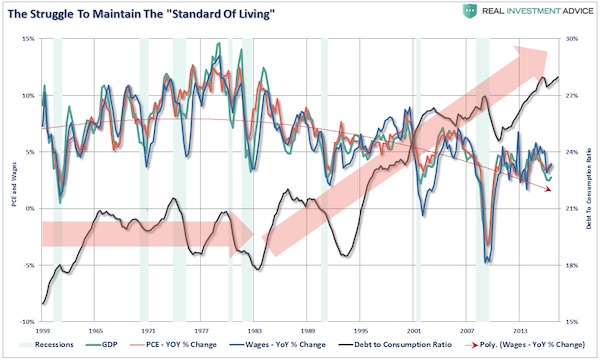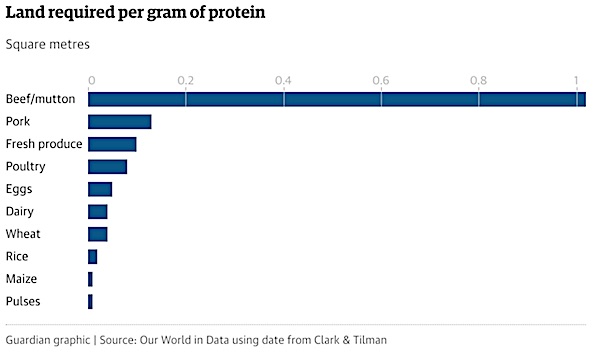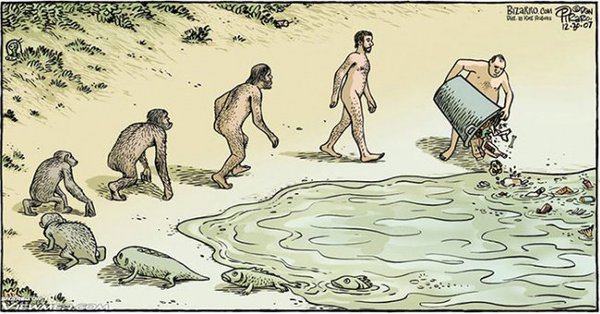
René Magritte L’éternité 1935



Watters
The 1500 page spending bill that Congress tried to jam in yesterday just got hacked down to 116 pages. It was a big win for @realDonaldTrump and @DOGE. When Democrats found out they wouldn’t be getting a raise, they started chanting “hell no” inside of their little meeting room.… pic.twitter.com/a9unFYmVqF
— Jesse Watters (@JesseBWatters) December 20, 2024
Elon severance
Elon Musk: Many people in government could be more productive elsewhere.
“We will reduce a lot of government headcount, but we're going to give very long severances. Like two years, or something like that.
Look, just go do something else is what we're going to say. And you'll… pic.twitter.com/OdYXfLWInn
— ELON CLIPS (@ElonClipsX) December 20, 2024
MuskTrump
NEW: Democrats have launched a coordinated campaign with help from the media to drive a wedge between Elon Musk and Donald Trump.
They see how influential X is and are trying to sabotage it. Don't fall for it.
At the exact same time, every major Democrat leader is now… pic.twitter.com/0pPhf8Nfko
— Collin Rugg (@CollinRugg) December 20, 2024
MuskTurley
JONATHAN TURLEY: ELON CAN’T BE COERCED, AND THEY'LL NEVER FORGIVE HIM FOR THAT
“It's like another scene out of The Lord of the Flies.
You have all these pundits and politicians chasing him around the island, and people go into absolute vapors every time he talks about… pic.twitter.com/MEJgO4hNsr
— Mario Nawfal (@MarioNawfal) December 20, 2024


Through this whole circus, I get the impression that what really counts is the words used to phrase the bill. You need words that allow both sides to declare victory, no matter what the bill actually says.
• Shutdown Odds Tumble As House Passes Latest GOP Spending Package (ZH)
Update: With the support of Democrats, the House just passed Speaker Johnson’s latest spending package bill. Lawmakers voted 366 to 34 to approve the proposal, well above the two-thirds threshold needed under special fast-track procedures. One lawmaker voted present. It now heads to the Senate, while the White House said in a statement that President Biden won’t stand in the way. “President Biden supports moving this legislation forward and ensuring that the vital services the government provides for hardworking Americans—from issuing Social Security checks to processing benefits for veterans—can continue as well as to grant assistance for communities that were impacted by devastating hurricanes,” White House Press Secretary Karine Jean-Pierre said in a statement. Polymarket’s odds of a government shutdown are tumbling.
As the Epoch Times notes further, moments after the House of Representatives passed a new package to keep the federal government funded through March 14, House Speaker Mike Johnson (R-La.) and other congressional lawmakers discussed the process that brought the bill over the finish line. “In bipartisan fashion, with an overwhelming majority of votes, we passed the American Relief Act of 2025,” Johnson said, adding that funding the government through March 2025 was “a big priority for us.” The House Speaker described the package as “America First” legislation that allows his GOP coalition to deliver the nation a “sea change in Washington” after Inauguration Day next month. “President Trump will return to D.C. and to the White House, and we will have Republican control of the Senate and the House,” Johnson said.
“Things are going to be very different around here.” House Minority Leader Hakeem Jeffries (D-N.Y.) took credit for the bill passing Friday evening. “House Democrats have successfully funded the government at levels requested by President [Joe] Biden in order to meet the needs of the American people in terms of their health, safety, and economic well-being,” Jeffries told reporters after the vote. “We have successfully advanced the needs of everyday Americans, but there are still things to be worked on, and we look forward to that fight in the new year.”
The package also included requested disaster relief funds after an active hurricane season that included multiple destructive storms in multiple states throughout the southeast. Rep. Buddy Carter (R-Ga.), was relieved that portion was included in the final package. “Thank God we got disaster,” Carter told The Epoch Times. Regarding the debt ceiling consideration, Rep. Tom Emmer (R-Minn.) said that the public would have to wait and see what would “be done early in the next administration.” President-elect Donald Trump suggested he was pleased with the outcome of the vote, Rep. Rich McCormick (R-Ga.) told The Epoch Times.
Read more …

Things move fast, but it’s still useful to see what is said before the finish line.
• US Democrats Want Government Shutdown To Strip Trump Of Leverage – Vance (RT)
US Vice President-elect J.D. Vance has blasted the Democrats for rejecting a spending plan supported by Donald Trump, claiming they are trying to prevent the incoming president from “negotiating leverage” in the first year of his new term in the White House. The current federal funding is due to expire at midnight on Friday, leaving the government on the brink of a shutdown. The Democrats on Thursday rejected the new spending plan, known as a continuing resolution (CR). Thirty-eight Republicans also voted against it. The bill failed by a vote of 174-235. “The Democrats just voted to shut down the government even though we had a clean CR because they didn’t want to give the president negotiating leverage during the first year of his new term,” Vance told reporters straight after the vote.
On Wednesday, US President-elect Trump dismissed a previous bipartisan funding deal, which had been struck to prevent a shutdown just days before the Christmas break. Republicans balked at the proposed package, claiming it was bloated and full of Democratic policy priorities. Tech billionaire Elon Musk slammed the measure in dozens of posts on X, describing it as “criminal.” Instead, Trump urged lawmakers to pass a new package that included an extension of government funding until March and a two-year suspension of the debt limit into January 2027, adding trillions more to the federal government’s $36 trillion debt. The Trump-backed bill failed just hours after it was assembled, with Republican House Speaker Mike Johnson pledging to come up with another solution before government funding lapses at midnight on Friday.
Republicans have voiced opposition to increases in government spending, while Democrats voted against the bill because they argued the extra borrowing would be used to pass tax cuts for the wealthy. “They’ve asked for a shutdown and I think that’s exactly what they’re going to get,” Vance claimed. If lawmakers fail to approve a spending bill or extend the deadline, the US government will begin a partial shutdown that would affect millions of federal employees and the services they provide. While essential services such as border protection, in-hospital medical care, law enforcement and air-traffic control continue to operate, the shutdown would affect a vast number of operations, from court proceedings to travel and food safety inspections. Federal workers could go without pay, expecting they would be paid back in full once the government reopens. The last US government shutdown took place in December 2018 and January 2019 during Trump’s first White House term and was the longest in the country’s history.
Read more …

“..all US presidents have gatekeepers, the walls around Biden “were higher and the controls greater.”
• Advisers Had to Babysit “Diminished” Biden From the Very First Day (Sp.)
Joe Biden, the oldest president in US history, has repeatedly been criticized for his cognitive decline and a tendency to fall. Outgoing US President Joe Biden’s entourage has covered up the extent of his mental decline since he entered office in 2021, the Wall Street Journal reported in its bombshell investigation. The newspaper cited numerous unnamed Democratic lawmakers, donors, and presidential aides as saying that despite the fact that all US presidents have gatekeepers, the walls around Biden “were higher and the controls greater.” “There were limits over who Biden spoke with, limits on what they said to him, and limits around the sources of information he consumed,” the sources argued. “They body him to such a high degree,” one insider claimed, adding that there has been more “hand-holding” as compared to other presidents.
Biden’s “tightknit inner circle of advisers” also worked out a strategy to prevent POTUS from making gaffes or missteps that could tarnish his image, according to the sources. The advisers did their best to keep Biden’s meeting short as his public interactions became more scripted. The strategy, however, collapsed during Biden’s June 27 debate with Donald Trump, which saw the former being unable to complete his thoughts. US media reported at the time that the disastrous debate became an eye-opener and a turning point in discussions of Biden’s mental state and his suitability to serve as the next president. The 82-year-old finally dropped out of the presidential race and endorsed Kamala Harris as his replacement in late July.
VDH
NOW – Victor Davis Hanson Blasts Dem Cover-Up of Biden's Decline 'Greatest Presidential Fraud Since Woodrow Wilson's Stroke' |
Victor Davis Hanson just came out swinging, slamming Biden and those surrounding him after years of a corrupt administration plagued with scandals.… pic.twitter.com/S6vNVMEgyO
— Overton (@overton_news) December 20, 2024
Doocy https://twitter.com/i/status/1870109006779359467
Read more …

The Dems and their media play dangerous games.
“Suddenly, everyone is shocked to learn that Biden was mentally diminished..”
• “He has Good Days and Bad Days” (Turley)
In an explosive exposé, the Wall Street Journal has revealed how the mental decline of President Joe Biden was pronounced from the start of his term. However, cabinet members and other Democrats lied to the public about his declining levels of acuity and engagement. That effort succeeded largely with the help of an alliance with the media, which showed little interest in whether the President was actually running the government. After President Joe Biden’s disastrous debate performance, the solid wall of media and staff shielding his declining mental state collapsed. Even after Special Counsel Robert Hur declined criminal charges against Biden due to his diminished state, Democratic pundits and the press covered for him, claiming that he was sharp and effective. With the debate, the public was able to see what many in the media and the White House had been hiding for years.
After interviewing roughly 50 insiders, the Journal found evidence of a knowing effort to hide Biden’s mental state. For many, Biden’s refusal to leave his home for much of the 2020 campaign was evidence of the insecurity of staff about his ability to engage with reporters. It only got worse during the term as staff virtually tackled anyone trying to ask him a question. Biden was routinely shuffled off stage after reading briefly from a teleprompter. Behind the scenes, cabinet members reportedly stopped asking for meetings with Biden after staff conveyed that such requests were not welcomed. He held far fewer cabinet meetings and was often considered “down” for any discussions. That included a period during the calamity of the Afghan withdrawal.
One official is quoted as admitting on one occasion in 2021 that Biden “has good days and bad days, and today was a bad day so we’re going to address this tomorrow.” That was just after he was elected. Yet, Biden was kept within the protective cocoon of media that did not press the issue and was infamous for ignoring scandals while asking Biden about his choice of ice cream on a given day. Now, some media outlets are re-positioning on the issue as they prepare to resume hard questioning and investigations in the new Trump Administration . . . after a four-year hiatus. Suddenly, everyone is shocked to learn that Biden was mentally diminished and blaming nameless staff for misleading them.
One exception this week was Chris Cillizza, who served as CNN’s editor-at-large before leaving the network in 2022. On YouTube, Cillizza stated, “As a reporter, I have a confession to make” and admitted “I should have pushed harder earlier for more information about Joe Biden’s mental and physical well-being and any signs of decline.” Now, everyone likes a redemptive sinner and I give Cillizza credit for admitting his own failure to pursue the story despite many critics objecting for years over the lack of such inquiries. However, Cillizza only confessed to failing to pursue the story due to a fear of being accused of “age shaming” Biden. The suggestion is that identity politics chilled journalism, not the overwhelming media support for the President and countervailing opposition to Trump.
The “age shaming” excuse is difficult to square with the failure to pursue an array of other scandals during the term from influence peddling to policy debacles. Nevertheless, Cillizza was remarkably frank that he was only able to push on the story after leaving CNN: “I didn’t really push on it, if I’m being honest. Now, once I left CNN and once it became a little bit more clear to me about Biden’s age, I think I did write pretty regularly and talk pretty regularly about how I wasn’t sure that this guy was up to it. And then obviously, after the June 27 debate, everybody, including me, was writing and talking about it.”
Chris Cillizza apologizes for his coverage of Biden while at CNN: "As a reporter, I have a confession to make: I should have pushed harder earlier for more information about Joe Biden's mental and physical well-being and any signs of decline."@DailyCaller pic.twitter.com/9GWSmUhgEA
— Jason Cohen
(@JasonJournoDC) December 19, 2024
Read more …

X is most influential. That’s where Musk is. Trump, on Truth Social, has far less reach. They are very aware of this, and use it to their advantage.
Trying to drive a wedge between them is a fool’s game.
• Musk Far More ‘Influential’ Than Trump Online – WaPo (RT)
Messages that Elon Musk posts on X, the platform he purchased for $44 billion in 2022, have received far more viewership than those of any other politically-involved users, including President-elect Donald Trump, the Washington Post reported this week. The newspaper, which generally favors the Democratic Party, has tracked engagements since July, the month when the billionaire endorsed Trump for president. It said it has been monitoring posts hourly for 48 hours after publication to assess the “influence” that X users have on their audience. According to its analysis, Musk’s messages have received a total of 133 billion views during the monitoring period, which is 15 times more than Trump’s posts on the platform and more than 16 times more than the combined reach of all accounts belonging to members of the incoming Congress.
In short, the entrepreneur “eclipses” all others in terms of influence, the Post suggested. Trump was suspended from Twitter in the wake of the January 6, 2021 Capitol Hill riot, before Musk bought the company and changed its name to X. The president-elect has since moved the bulk of his political messaging to his own platform, Truth Social. Musk reinstated Trump’s X account after purchasing the microblogging network. WaPo has suggested that Trump’s presence elsewhere doesn’t significantly affect its analysis. He has “only 8.4 million followers there compared to his 96 million on X,” it said. Critics of Trump have been sounding the alarm over what they perceive as the undue influence that Musk has on the Republican politician and the future policies of his administration.
The billionaire has been closely involved with the transition process and has publicly weighed in on electoral politics with his online commentary on appointments. Nancy Pelosi, the former House speaker and a key figure in the Democratic establishment, described Trump as the billionaire’s “puppet” on Thursday, while reacting to the failure of Congress to pass a stop-gap funding bill this week. Musk has led the online charge against the 1,547-page proposal, released on Tuesday, branding it “criminal,” “outrageous,” “unconscionable,” and ultimately “one of the worst bills ever written.” Democratic lawmakers opposed an alternative bill pitched by Trump. Friday is the deadline for allocating more money to keep the federal government running.
Read more …

“..nominal growth is higher than the nominal deficit and the debt-to-GDP ratio is declining. That’s the key to sustainability.”
• Trump’s Economic Plans (Jim Rickards)
Trump will begin his first 100 days with an emphasis on his economic plans. His core economic team is already announced including Russell Vought as Director of the Office of Management and Budget, Jamieson Greer as U.S. Trade Representative, Kevin Hassett as Director of the National Economic Council, Scott Bessent as U.S. Treasury Secretary, and Howard Lutnick as Secretary of Commerce. Hassett and Bessent will form the core of this team with Greer taking the lead on tariffs and Vought taking the lead on budget deficits and fiscal policy. Trump’s economic policy will be built around what are called the Three Arrows. That’s a name adopted by the new Treasury Secretary Scott Bessent. He took the name from the Three Arrows policy of Japanese Prime Minister Shinzo Abe, who announced them in 2012. Abe’s arrows were monetary easing, fiscal stimulus and structural reforms to make Japan more competitive. Bessent’s arrows are different, but the basic idea of using government to help grow the economy in productive ways is the same.
Bessent’s plan is also called the “3–3–3” plan for reasons that are made clear below. Bessent’s first arrow is to achieve 3% annual real growth in the U.S. economy. This may not sound like much, but it is. From 2009 to 2019 (basically the period from the end of the last financial crisis to the beginning of COVID), the U.S. grew at a rate of only 2.2% per year. Economists estimate that the potential growth of a mature developed economy such as the U.S. is about 3.2%. That gap between 3.2% potential growth and 2.2% actual growth means trillions of dollars of lost wealth over time. From 1983 to 1986 during the Reagan years, the economy actually did grow at just over 5% per year. Real growth during that three-year stretch was 16%. (Although this followed the severe recession of 1981-1982.
Growth higher than potential is possible when labor and industrial slack from a prior recession is available). So, Bessent’s goal of 3% real growth is realistic given potential performance, past performance, and recent lagging growth. The emphasis here is on “real” growth. This means growth without taking into account any inflation. If real growth is 3% and inflation is 2%, then nominal growth will be 5% (3% real + 2% inflation = 5% nominal). Everyday Americans are properly focused on real growth because they don’t want to see their wage gains eaten up by inflation. Still, nominal growth is important when considering debt service since debt is nominal — you owe what you owe whether the real value is preserved or not. Bessent’s second arrow is to keep annual deficits below 3% of GDP. When discussing debt, we are dealing with nominal amounts rather than real amounts. For example, if U.S. GDP is projected at $28 trillion for a given fiscal year, then the deficit for that year cannot exceed $840 billion under Bessent’s plan.
Note that this does not involve “paying off the national debt” or even running a small surplus. A deficit of $840 billion is huge. But the limitation of 3% of GDP is highly significant in terms of making the debt sustainable and maintaining confidence in the U.S. dollar and U.S. Treasury securities. Before deciding that this is an easy target, it’s helpful to know that the U.S. deficit for fiscal year 2024 is $1.83 trillion. The deficit in fiscal year 2023 was $1.69 trillion. In short, Bessent’s goal of an $840 billion deficit represents a 54% reduction in the deficit from 2024 levels and a 50% reduction from 2023 levels. That’s a huge reduction in the deficit in one fiscal year. Not all of this deficit reduction would have to come from spending cuts, although some of it could, especially if Elon Musk and Vivek Ramaswamy identify enough government waste through their new Department of Government Efficiency (DOGE).
It’s likely that Musk and Ramaswamy will easily identify wasteful spending. The hard part is getting it to stop. The other way to cut the deficit is to grow the economy in such a way that government revenues grow with it. This does not mean tax rate increases. It does mean tax revenue increases from current or even reduced tax rates. One ace-in-the-hole for Trump and Bessent will be tariffs. Those are not part of the Internal Revenue Code, but they do generate government revenues. The U.S. began tariffs in 1790, but the Internal Revenue Code did not come into being until 1913. For 123 years, the U.S. government-funded itself mostly with tariffs, excise taxes, and borrowing without the benefit of income taxes.
The U.S. currently imports over $3.5 trillion of goods per year. If only half were subject to tariffs of 10%, that would generate $175 billion of new revenue, which goes a long way to reaching Bessent’s deficit reduction goals. Now the genius of the Three Arrows plan becomes clear. If nominal GDP growth is 5% (3% real + 2% inflation), and nominal deficits are kept to 3% of GDP, that means nominal growth is higher than the nominal deficit and the debt-to-GDP ratio is declining. That’s the key to sustainability.
Read more …

“..the alphabet news outlets, which provided Kamala Harris with “78 percent positive coverage, while these same networks have pummeled former President Donald Trump with 85 percent negative coverage..”
• Trump Wins—and the Censorship Begins (AmG)
As was proven during the 2024 election cycle, we are well beyond the scope of mere bias in the legacy media. Given the shrinking audience influence coupled with massively declining income from severe loss of cable subscriptions and advertising revenue, American media outlets have chosen a different course: straight-up propaganda intended for consumption by a niche audience, half of which don’t know they’re being lied to and the other half not caring. Broadcasting has been replaced with “wish casting.” How else can we explain the completely lopsided coverage from the alphabet news outlets, which provided Kamala Harris with “78 percent positive coverage, while these same networks have pummeled former President Donald Trump with 85 percent negative coverage?” And it was even more biased on CNN and MSNBC.
Major media outlets broadcast opinion-centric journalism that push narratives, ranging from “extinction-grade climate crisis” pronouncements to the “existential threat to democracy” dangers of a second Donald Trump presidency. There are no “two sides” reporting here; it is commentary passed off as “journalism” that wraps news stories around pre-packaged and carefully circulated talking points that favor the establishment bureaucracy and big-moneyed interests over American citizens. Simultaneously, Trump is a threat to democracy and will jail or even execute his opponents, is in service to Vladimir Putin, and will wreck the economy with his extremist MAGA agenda that is tied directly to Project 2025.
Trump will launch World War III, he’ll outlaw homosexuality and transgenderism, and he’ll cancel all future elections and become dictator for life. It will be the end of America, and a vote for Kamala Harris will be our “new way forward.” The American legacy media always had a tenuous relationship with its viewers and readers, losing its credibility every time the public finds that what is reported turns out to be completely untrue. Exhausted from the lies of omission and outright fabrications, the legacy media found itself without much of an audience and surprisingly little influence on the 2024 presidential election. But a ridiculous narrative is shaping up, one plainly untrue on its face, that the reason for Trump’s victory was not inflation, illegal immigration, or the economy, or that Harris-Walz was an outrageously insulting offering by the Democrats.
No, the reason Trump sailed to victory was “the massive influence of right-wing media.” Let that last statement sink in for a moment. That’s right, you can blame One America News, X, Newsmax, Fox News (still considered “right-wing” by many, especially on the left), assorted podcasts, and especially Joe Rogan, for putting Trump back into the White House. And the legacy media, who provided hideously lopsided coverage against Trump for years and conducted the presidential and vice-presidential debates in a grossly biased fashion, whines that their massive investment in Kamala Harris was thwarted by a relatively tiny segment of alternative media and citizen journalism. You have delusional, far-left, Democrat operatives like Julie Roginsky being taken to the woodshed by Scott Jennings, saying that the media and social media, especially, are now controlled by conservatives
[..] Need more evidence? Watch compressed election night coverage on ABC, CBS, NBC, CNN, and, worst of all, MSNBC to see how optimism at 8 PM EST morphed to concern by midnight and outright despair around 3 AM when Trump declared victory. Both left-leaning cable channels, CNN and MSNBC, didn’t call the race until shortly after 5 AM on Wednesday. The Associated Press, the New York Times, CBS, and ABC all called the race around 5:30 AM. This was hours after the result was no longer in doubt. Well, it actually was. But it’s not because of the outsized influence of conservative media; it was because of the decimated influence of the legacy media. Most Americans no longer need solid evidence to conclude that they are being lied to by legacy outlets; thus, they turn to alternative media for truthful content and credible opinion.
This obvious shift in content consumption should be solid proof that the left can no longer control, frame, or even influence public opinion. The growth of alternative media and Elon Musk’s refusal to censor conservative thoughts and opinions on X/Twitter have loosened the multi-generational grip legacy media has had over journalism and have brought new voices into the mix, offering a mere balance in information. But the American Left cannot tolerate informational balance.
Read more …

“The nation appears to be having a kind of moment involving a gross, naked emperor and a bunch of people noticing this isn’t a nudist-friendly zone.” — Jeff Childers
• Yet Another Christmas Carol (James Howard Kunstler)
Hitler was dead, to begin with. As dead as ein Türnagel. At least no one had heard him squawk since the Russkies cracked bottles of Dunkelbrau at the Brandenburg Gate, April, 1945. Nobody ever called Joe Biden “Hitler,” but around his gloomy place-of-business, known as the “White House, they sometimes called him “Joe Biden,” with a titter and a smirk, as they called “a lid” on his bewildered day and stuffed him into the nearest broom closet. “Joe Biden” was a mere babe in pram when old Adolf bid farewell to his smoldering Reich. But, eight decades later, after being jammed into the Oval Office by his chauffeur, one Barack Obama, the grasping, scraping, flinty, clutching, covetous old bird, sometimes known as “the Big Guy,” from whom no match had ever struck the fire of an original idea, or a good idea, or even a sound, workable idea, shuffled to his bed-chamber in the lonely compartment known as the White House “residence” on Christmas eve.
“Humbug!” he maundered to himself as he struggled aboard the cold presidential bed, absent lately of the doctor who once claimed to be his wedded wife. “Humbug,” was the new flavor that Ben and Jerry had concocted just for the holiday, a “green” ice-cream featuring pureed mealworms and cocoa bean husks for a satisfyingly punitive crunch. Was Dr. Jill dead, too, now, old “JB” wondered, like his old pals Senator Byrd, and feisty Strom Thurmond and other members of “the firm?” (Or was she in the arms of that scoundrel, Emhoff?) “Humbug,” he mumbled as he fell off into a cruel, blank slumber. He awakened — he knew not how many minutes longer — to a snorting noise, as of pigs rooting in a forest, followed by a thin, sonorous wailing that might have been the revenant of some once-mighty bombast in the Nuremburg Zeppelinfeld.
And then resolved out of a mist the very figure of Hitler, his once-smart, gray Führeruniform tattered and threadbare, and the whole of his body wreathed in rotting sausages, the reek of which might have driven a rank of the stoutest, blondest SS leutnants to their knees in abject surrender. “What do you want of me?” Scrooge cried, but this ghost of Hitler only wailed again and beckoned with gnarled finger. Suddenly, “Joe Biden” seemed to be flying out in the night air across a great swamp, and then north over the Beltway, to Scranton, Pennsylvania. The scene: a slagheap behind the Lackawanna Iron and Steel Company, 1949. “JB” is a boy again — oh, to be a boy, with loose joints and a clear mind! — playing with his chums, Bob McGee and Sonny Donahoe. They are reenacting the last days of World War Two.
“I’ll be Ike,” says Bob, always a leader whom “Joe” liked to please. “Sonny, you be Omar Bradley. And “Joey,” you can be Hitler.” “Joey” loved playing Hitler: a few minutes of fulminating histrionics! Then, his hand mimicking a Walther P-38 with the muzzle pointed behind the ear, and the plosive pow! And then, writhing upon the heap of cinders acting out the Führer’s last moments. “You were so good at it!” the ghost wailed. “What happened to you?” “I wish I knew. Everything’s a blur now. But tell me, spirit: was I a good you?” “One of the best!” the ghost of Hitler moaned and dissolved into vapor.
“Joe Biden” wakes again in his bedchamber. It is flooded with bright light and trappings of the holiday: a tree festooned with what appear to be gleaming glass ornaments shaped like dildoes. And before it, enrobed in scarlet and muskrat fur, the cheerful figure of Senator-elect Adam Schiff, grinning from ear to ear, with a wreath of holly about his lightbulb-shaped head. The light is blinding. “What are you doing here?” the president asks. “And remind me what your name is, if it’s not too much to ask. “I am the ghost of Christmas Present,” Mr. Schiff intones, as though dispensing yet another rumor of Russian collusion. “Come, take my hand.”
Read more …

Kiriakou appears to suggest that Patel would go after people who have immunity. He won’t.
• The FBI Deserves Kash Patel (John Kiriakou)
On the surface of things, Kash Patel is the kind of person most of us would want to keep out of government. A MAGA true believer, and Donald Trump’s choice to head the F.B.I., he’s the tip of the spear of Trump’s apparent effort to use the courts to go after his perceived enemies in the media and on Capitol Hill. The mainstream Democratic-oriented press is apoplectic about the appointment. The Christian Science Monitor said it most clearly when it wrote that, “Democrats invoke (the notorious late F.B.I. Director J. Edgar Hoover) as they warn about Mr. Patel, suggesting he will target political enemies. Republicans, though, compare Hoover’s tenure to what they say is a modern ‘deep state” resisting and harassing Mr. Trump.” That’s the bottom line. Democrats compare him to Hoover while Republicans argue that he’s the anti-Hoover.
I’m here to argue that Kash Patel is exactly what Americans need right now at the F.B.I. We need somebody with the guts and the political authority to burn the F.B.I. down, at least figuratively. First, I’m under no illusions that Kash Patel is a good guy. According to former Fox News host Bill O’Reilly, Patel is “salivating” at the opportunity to investigate and, apparently, charge former Rep. Liz Cheney with some sort of crime because of her work on the Jan. 6 Committee. This is not only wrong, it also ignores the fact that Cheney had congressional immunity for her work because she was serving in an official capacity for the committee. Nothing will come of any investigation.
The press also has opined that Patel will target police officers who arrested protestors at the Jan. 6 riots at the Capitol for investigation. Again, the police have qualified immunity, and nothing will come of the idea. He has also called for the prosecution of a wide range of political figures, including President Joe Biden, Vice President Kamala Harris, former Secretary of State Hillary Clinton, and outgoing F.B.I. Director Christopher Wray. Again, they have immunity, and nothing will come of Patel’s rhetoric.
[..] The bureau also investigated candidate Trump and participated in the Russiagate fiasco in Operation Hurricane Crossfire. I’ve had my own negative experience with the F.B.I. In 2009, the bureau secretly opened a criminal case against me in response to my having blown the whistle on the C.I.A.’s torture program. In the end, I was charged with five felonies, including three counts of espionage. I hadn’t committed espionage, of course, and those charges were dropped, but not until I had declared bankruptcy.
To make the case go away, I pleaded guilty to a lesser charge and served 23 months in a federal prison. I had been facing 45 years. In the intervening years, three F.B.I. agents have reached out to me to apologize for their role in the case, saying that it was political in nature and that they were ordered to target me. That’s the F.B.I. That’s what it does. And that is why we need Kash Patel at the helm of the F.B.I. right now. We need somebody who is willing to tear this organization down to its bare studs. The F.B.I. is a criminal organization. It should be dealt with like a criminal organization. There should be a price to pay for its crimes against the American people.
Read more …

And what’s the return on that investment?
“This “enormous” amount of money could have been given to Europeans to make people’s lives much better..”
• West Has Pumped Over $300 Billion Into Ukraine – Orban
The US and the EU have provided over $300 billion in financial aid and military assistance to Kiev since the escalation of the Ukraine conflict in 2022, Hungarian Prime Minister Viktor Orban has said. Such a huge amount of money “could have done wonders” had it been spent to improve the lives of people within the EU, he said in an interview with Kossuth radio on Friday. Orban highlighted the evolving military situation, noting that “the balance of power on the frontlines is shifting day by day” in Russia’s favor. He also pointed to the political changes expected in the US when Donald Trump returns to the White House next month. The developments call for leaders in EU capitals to embrace a more pragmatic approach to ensuring stability and economic resilience within the bloc, Orban believes.
However, the prime minister argued that Brussels remains out of touch with global realities, pointing to a recent European Parliament decision to continue sending substantial funds to Kiev – a move he described as a clear example of misplaced priorities. “During the negotiation with the Americans, I received the figure that Europe and America together have spent €310 billion so far. Those are huge numbers!” the Hungarian prime minister stressed. He argued that the hundreds of billions of euros already spent to fund the conflict could have been used to bolster European infrastructure, to develop countries in the Western Balkans to the level of the EU, or beef up military capabilities. This “enormous” amount of money could have been given to Europeans to make people’s lives much better, the Hungarian leader concluded.
Russia has repeatedly warned that no amount of Western aid will stop its troops from achieving the goals of the military operation or change the ultimate outcome of the conflict. By backing Kiev, they only prolong the conflict, Moscow has argued. Earlier this month, Orban proposed a Christmas ceasefire between Ukraine and Russia, describing it as a last-ditch attempt to mediate a diplomatic resolution of the conflict. He floated the idea to Kiev and Moscow, as well as to Trump, who he personally met at his residence in Florida. The Kremlin spokesperson, Dmitry Peskov said that Moscow “fully supports Orban’s efforts aimed at finding a peaceful settlement and resolving humanitarian issues related to the exchange of prisoners.” However, Ukrainian leader Vladimir Zelensky rejected Budapest’s offer.
Read more …

Sitting ducks.
• Kiev’s Western Backers Wary About Training Soldiers Close To Front – Media (RT)
Western officials are concerned about British plans to potentially resume the training of Kiev’s troops inside Ukraine, The Times reported on Friday, citing sources familiar with the matter. The UK is among the nations that have trained the Ukrainian military on their soil. Valery Zaluzhny, Kiev’s former top general who has been appointed ambassador to London, toured a boot camp in southern England last month to tell these recruits that they should not be afraid to die for their country. This week, British Defense Secretary John Healey said the UK could send military personnel to Ukraine. Such a move would help the Ukrainians “motivate and mobilize more recruits,” he suggested during a visit to Kiev. “The closer to the front, the more efficient the training is,” a Western official told The Times, discussing the merits and drawbacks of such a deployment.
“But it’s fair to say the Russians would target any kind of Western assistance inside Ukraine.” The UK had sent several dozen instructors into Ukraine in January 2022 to teach Kiev’s forces how to operate British-donated anti-tank missiles, the report added. They were pulled out shortly before direct hostilities with Russia broke out the following month. Yavorov military base in Western Ukraine, where the training took place, was hit by Russian long-range missiles within weeks, in March 2022. The Ukrainian military is struggling to replenish manpower, despite a major overhaul of its mobilization system this year, which introduced harsher punishments for draft avoidance and lowered the conscription age to 25 years. Mandatory conscription makes recruits prone to desertion, according to the media.
Kiev’s Western backers claim that moving their training programs closer to the front would bolster the confidence of Ukrainian citizens that they would be properly trained and equipped before being sent into combat. The Times claimed that Tony Radakin, the chief of the defense staff, overruled Army chief Patrick Sanders, when he was pushing in September 2023 for the UK to train Ukrainian troops inside the country. Russia considers foreign fighters in Ukraine fair military targets. It claims that some Western service members are secretly on the ground, preparing the launches of donated long-range missiles, including Britain’s Storm Shadows. This makes the donors de facto participants in the fighting, Russian officials have said. Moscow has condemned the conflict as a Western proxy war against Russia, in which Ukrainians are used as ‘cannon fodder’.
Read more …

Replaced by “Russia must not prevail”.
• EU Deletes ‘Ukraine Must Win’ Mantra (RT)
The European Union has reportedly dialed back its stance on the Ukraine conflict, replacing the phrase “Ukraine must win this war” with “Russia must not prevail” in a European Council statement on new sanctions against Russia, first released on Monday. The revision apparently came after questions from Politico about its alignment with Brussels’ latest diplomatic messaging. An EU official said the original statement was a mistake, according to Politico’s Brussels Playbook newsletter. A separate statement released by the European Council on Thursday also used the phrase “Russia must not prevail” when discussing the Ukraine conflict. Council President Antonio Costa, who had a joint press conference with Ukrainian leader Vladimir Zelensky the same day, stated that “international law must prevail.”
Politico’s Eddy Wax said the change in EU messaging highlights a broader shift in the West, as US President-elect Donald Trump intends to seek a swift end to the hostilities upon taking office in late January. Some senior figures in the EU, including the bloc’s top diplomat, Kaja Kallas, have continued to insist that “Ukraine will win” in their public statements. However, there is a growing acknowledgement in Brussels that it cannot prop up Kiev without Washington’s backing, the Politico report suggested. “The EU’s strategy appears to be flattering Trump, wishfully projecting onto him, and turning a blind eye to some of his more alarming statements,” the outlet said.
Kiev, meanwhile, has not toned down its rhetoric on the conflict. On Thursday, both Zelensky and his chief of staff, Andrey Yermak, publicly insulted Russian President Vladimir Putin following his annual marathon Q&A event earlier in the day. Former Russian President Dmitry Medvedev, who serves as deputy chair of the national Security Council, suggested on Friday that Kiev was trying to derail Trump’s peace efforts by antagonizing Moscow further. Zelensky is “showing the middle finger” to the incoming American leader, Medvedev claimed.
Read more …

Only if Russia gives permission. Which means no weapons.
• Could European Peacekeepers Really be Deployed to Ukraine? (Sp.)
Few European countries would risk sending their soldiers to Ukraine as part of some kind of a peacekeeping force, former Swedish military officer and politician Mikael Valtersson told Sputnik. He outlined two potential scenarios of peacekeeper deployment in the Ukrainian conflict zone, with the basis for both being “a ceasefire along the current front lines and no Ukrainian NATO membership in the foreseeable future.” The first scenario involves an international peacekeeping force comprised of troops from countries or regions unaffiliated with the participants of the Ukrainian conflict, such as “Türkiye, India, Latin America, Africa, ASEAN and maybe European countries like Hungary and Slovakia.”
The second scenario, where EU troops would be sent as peacekeepers, would likely result in Russia perceiving it as a breach of any ceasefire and would restart the fighting “long before the Western forces reached the front lines.” As a result, Europe would be left with a conflict “involving several European countries, but without the backing of NATO or the US,” so it is small wonder that, as Valtersson put it, “it would be impossible to get unity within Europe about such a mission.”
“Instead, the fighting probably will continue during 2025, without US support, until Ukraine realises that they must accept the situation on the ground. But then the conditions might be even more severe for Ukraine,” Valtersson mused. “They lost a great opportunity to get a good deal during the Istanbul negotiations and risk gambling away even more now.” “A much more plausible scenario for European military involvement on the ground in Ukraine is that some of the more hawkish nations send support units and ‘instructors’ to Ukraine,” Valtersson warned. These European troops would become prime targets for Russia, he added, without actually having “much impact” on the outcome of the conflict.
Read more …

“Christianity was born in Damascus (remember St. Paul) – not in Jerusalem. When Putin went to Damascus, he was on an Orthodox Christian pilgrimage: coming from the Third Rome (Moscow) to pay his respects to the precursor of the first Rome, the cradle of Christianity.”
• Putin’s Q&A and the Forever Wars Riddle (Pepe Escobar)
He spoke for four and a half hours, virtually non-stop, reviewing the results of 2024, mastering all the facts. His Direct Line received over 2 million questions, from Russia and around the world. And he had to crown the performance with a flourish, in an “I did it, my way” vein: “I believe that not only did I simply save [Russia], we moved away from the edge of the abyss.” The record would confirm it, compared to the appalling state of the Russia he inherited when first elected president in March 2000. President Putin’s end of the year Q&A contains enough substance to be unpacked for weeks, if not months. Let’s focus here on our current geopolitical crossroads: the Forever Wars in West Asia and Ukraine, two vectors of the standard imperial drive, now united in an Omni-War. Putin stated that, “we have come to Syria in order to prevent a terrorists’ enclave (…) In general, our goal has been achieved.”
Whether Syria remains “terrorist free” remains to be seen: the new, “inclusive”, rebranded as woke Emir of Damascus, al-Jolani, a Saudi national, is a certified Salafi-jihadi still with a $10 million American bounty on his head. The “enclave” now encompasses most of former Syrian sovereign territory, otherwise illegally occupied by jihadi gangs and Zionist lebensraum practitioners. It’s important to remember that Russia first intervened in Syria in 2015 not so much to keep access to the warm waters of the Eastern Mediterranean: but mostly to protect holy Christian Orthodox sites in Damascus. Christianity was born in Damascus (remember St. Paul) – not in Jerusalem. When Putin went to Damascus, he was on an Orthodox Christian pilgrimage: coming from the Third Rome (Moscow) to pay his respects to the precursor of the first Rome, the cradle of Christianity.
On the larger Levantine geopolitical picture, Putin is correct. The CIA invented Operation Timber Sycamore way back in 2012 to train and weaponize “moderate rebels” to overthrow Assad – spending over $1 billion a year: the most extensive CIA covert op since the jihad in Afghanistan in the 1980s. The UK, Saudi Arabia, Qatar and Jordan were Sycamore partners. Over the final years, the Pentagon jumped in to “prepare” Hayat Tahrir al-Sham (HTS), the “soft” ISIS splinter group. Ultimately it was nearly 14 years of toxic US sanctions and relentless siege warfare that led to the final act, complete with Ukrainian drone instructors, mountains of Qatari cash and the Turk-assembled crypto-al Qaeda infantry (no more than 350 fighters, according to Putin himself). Now it’s a matter of adapting. Putin said that, “we have established relations with all those that control the situation on the ground (…)
Most countries expect the Russian bases to remain (…) Our interests should coincide, a question that requires painstaking examination.” He also reminded everyone that politics is the art of compromise – and Russia’s strategic priority is to keep the bases in Tartus and Hmeimim. Putin brushed aside the notion that Russia has been weakened by Assad’s downfall in Syria, quoting Mark Twain: “Rumors about my death have been greatly exaggerated.” Instead, he practically proposed that the Russian bases could provide humanitarian aid: one can imagine the population of a deeply polarized, fragmented Syria arguing with the Salafi-jihadis to get their share. Were that to happen, Russia would be in direct aid competition with the collective West. The EU, via its new, deranged Estonian ultra-Russophobic foreign policy chief, has already ordered that there will be no sanctions relief if the Russian bases stay.
Read more …

“If earlier, let’s say, the same Iranian friends asked [us] to help them move their units into the territory of Syria, now they asked us to withdraw them from there.”
• The Russian Line On Syria (Helmer)
Quoting Mark Twain, President Vladimir Putin has made his first public statement on Syria during his Direct Line broadcast on Thursday. “Whoever wants to imagine Russia weakened…I want to recall the famous man and writer, who once said: ‘The reports of my death are greatly exaggerated.’” During four and a half hours of question-and-answer, Putin responded to questions on the Syrian conflict from a US and later a Turkish reporter. He said the future of the Russian bases at Khmeimim and Tartus is undecided. “The vast majority of [Syrian groups] tell us that they would want our military bases to remain in Syria. I don’t know — we should think about it, because we have to decide for ourselves how we relate to the political forces that are now in control and will control the situation in this country in the future. Our interests ought to coincide. If we stay there, then we have to do something in the interests of the country where we are.
”Putin endorsed the Turkish military movements into Syria over the Israeli ones. “Israel is also solving security issues for itself…We hope that Israel someday will leave the territory of Syria, but right now it is bringing in there additional troops. I think there are already thousands of troops. And I have such an impression, that they are not only not going to leave, but they are going to reinforce there…Turkey needs to ensure its security somehow. We understand that all. This is not for today’s meeting, so as not to waste time.” To Keir Simmons of NBC, Putin said: “You and those who, I repeat, pay your wages, want to present everything that happens in Syria like some kind of failure, the defeat of Russia…We came to Syria ten years ago so that it would not become a terrorist enclave like the fact we observed in some other countries, say, in Afghanistan.
In general, we have achieved our goals… And even those groups that fought against the Assad regime, with government troops, also undergo internal changes. No wonder today many European countries and the United States want to establish a relationship with them. If they are terrorist organizations, what are you doing there? So, they’ve changed, have they? This means that to a certain extent, the [Russian] goal has been achieved. “Furthermore, we did not have ground troops in Syria. They just weren’t there. There are our two bases — air and naval. The ground component consisted of the armed forces of Syria itself and some, as we all know — there is no secret here – the so-called pro-Iranian combat formations. In our time we even took out of there [Russian] special forces. We didn’t just fight there.
“What has been happening there? When armed opposition groups approached Aleppo, Aleppo was protected by about thirty thousand people. 350 militants entered the city. Government forces, and with them the so-called pro-Iranian units, retreated without a fight, blew up their positions, and left. And also with some small exceptions, where there were some clashes, that was what happened throughout Syria. If earlier, let’s say, the same Iranian friends asked [us] to help them move their units into the territory of Syria, now they asked us to withdraw them from there. We took out four thousand Iranian fighters from the Khmeimim base to Teheran. Part of the so-called pro-Iranian units went without a fight to Lebanon, some to Iraq.
“Today the situation in the Syrian Arab Republic is not easy, of course. We very much hope that there will be peace, tranquility. We support relations with all the groups that control the situation there, with all countries of the region. The vast majority of them tell us that they would want our military bases to remain in Syria. I don’t know — we should think about it, because we have to decide for ourselves how we relate to the political forces that are now in control and will control the situation in this country in the future. Our interests ought to coincide. If we stay there, then we have to do something in the interests of the country where we are.
“What will be our interests there? What can we do for them? This is a question that is waiting for painstaking research on both sides. Already now we can do something, including using these bases – we have already offered it to our partners, including those located in Syria, and neighboring countries. [We] offered the use of, say, the Khmeimim airbase to deliver humanitarian aid in Syria. And this is accepted with understanding and desire to organize this work together. The same applies to the naval base in Tartus. Therefore, whoever wants to imagine Russia weakened, since you are an American, I want to recall the famous man and writer [Mark Twain], who once said: ‘The reports of my death are greatly exaggerated.’”
Later in the broadcast, Putin was asked a question by Ali Jura of the Turkish state news agency Anadolu: “Mr. President, Israel violates international rights by killing tens of thousands of people, including children in Palestine and Lebanon. Israel now takes advantage of the situation in the region to occupy Syria and violates its sovereignty. How do you comment on the actions of Israel? Did you have a conversation with President Erdogan about the region as a whole? Thank you.”
Read more …




Brian Cox
I could listen to @ProfBrianCox all day. pic.twitter.com/iqmDNA0k1S
— Ian Miles Cheong (@stillgray) December 20, 2024

Gervais
Ricky Gervais tells a joke. pic.twitter.com/64WOJfBDyQ
— Defiant World (@DefiantWorld) December 19, 2024

Pesticides
Trump now talking about pesticides
It’s happening people pic.twitter.com/FwaT7ZWmZR
— Carnivore Aurelius ©

(@AlpacaAurelius) December 19, 2024

Wind https://twitter.com/i/status/1870062259013071095

Shelter toys https://twitter.com/i/status/1870094847211700470

Vibes https://twitter.com/i/status/1870187674583060962

Husky
pic.twitter.com/ROG5NaOqTx
— Doglover (@puppiesDoglover) December 19, 2024

Bump https://twitter.com/i/status/1870169812581974133


Support the Automatic Earth in wartime with Paypal, Bitcoin and Patreon.






